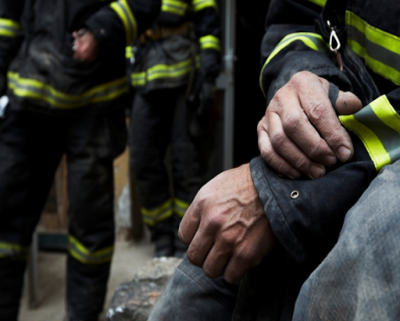March 2, 2020
We know that fire fighters and emergency medical services (EMS) personnel are on the frontlines battling the opioid crisis.
But is opioid use disorder a problem within the fire service? The short answer is yes.
Opioid addiction touches all segments of the population. However, while we know that fire and EMS personnel are already at an increased risk for developing substance use disorders, extremely limited, if any, research is available on the rate of opioid abuse and addiction among this occupational subgroup.

While fire fighters commonly respond to opioid overdoses, recognizing the signs that a crew member is living with opioid addiction is not always obvious.
Changes may be subtle at first, then progress or wax and wane overtime. A fire fighter living with opioid addiction may remain highly functional for a while, if access to a consistent prescription supply is not interrupted. Signs of opioid addiction[i][ii][iii] may include:
The hallmark feature of any addiction is an intense physiologically driven need to obtain and use the drug to prevent very uncomfortable and – in some cases – life-threatening withdrawal symptoms. This need persists despite the many negative physical, social, financial or occupational consequences.
Anyone suffering from opioid addiction may desperately want to cut back or quit use but simply cannot do so without help.
If you recognize these signs in a crew member or friend, a direct, thoughtful and compassionate response is needed. Your relationship will likely impact how you choose to intervene. Simple ways to start a conversation might include:
If you believe a crew member is impaired on the job or the safety of the crew member, your crew or the community is at risk, follow your department’s protocols.

Treating opioid addiction requires a long-term treatment approach that usually starts with detox and involves ongoing outpatient intervention, including maintenance medication, individual behavioral therapy and group-based support. Stable housing and strong support from family and friends are also essential to recovery.
The IAFF Center of Excellence for Behavioral Health Treatment and Recovery is a comprehensive treatment center designed exclusively for IAFF members struggling with addiction, post-traumatic stress disorder (PTSD) and other co-occurring mental health problems.
Lauren Kosc, M.A., LCPC is a behavioral health specialist, clinician and blog writer for the International Association of Fire Fighters. If you are an IAFF member in recovery and want to share your story, contact lkosc@iaff.org.
[i] https://www.hopkinsmedicine.org/opioids/signs-of-opioid-abuse.html